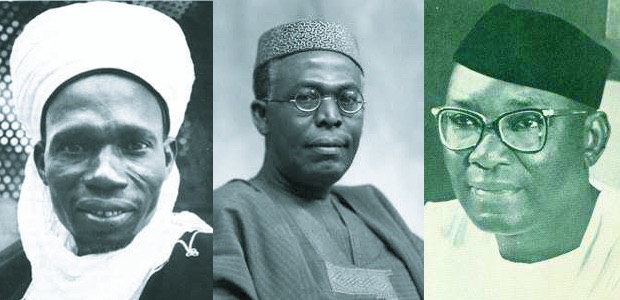The non political Niger Delta was made up of prosperous kingdoms like Benin, Nembe, Koko, Bonny, Okrika, Kalabari, Bille ruled by their monarchs of the time.
History have it that about 1465 they had started trading with the Portuguese, the Germans and later the British and these relationsip with the western world ehnaced the export trade and several first in Nigeria such as the first church was built in Bonny and Excise duty was first collected in a kalabri town called Bakana.
These kingdoms prospered to the point where natives owned steam ships like 'MV.Horlinks" owned by the Late Alabo George but when the British Politicians shoved aside the traders and formed the colonial administrative structure .Eventually by the 1900s these communities were now seen as minorities who were completely overrun prior to and post independence that by May 27 1966 when an administrative vehicle called States for example like Rivers State was availed them , they took it hook , line and sinker to enable them just breath from the choking domination from the Igbos . The consequences of this gift was too far fetched for them to think about its consequences at the time.
How did we as a people move from royalty to becoming minorities ???
But most important of all are we as people ready for the Next Fifty Years -#nfy
We will attempt to answer these questions
Hindsight
This discourse will commence with the present administrative structure called Rivers State as it birthed Bayelsa States and predates Delta, Akwa Ibom,Cross Rivers and Edo Sates. It will help to fill the gap ocassioned by the absence of history tutelage in our schools.
We wish to lean on history or the story of our yesterday to interpret today and a quote from Alan Woods 2016 summarizes our desire on the rudimentary aspects of Historical Materialism :
"..This scientific method enables us to understand history, not as a series of unconnected and unforeseen incidents, but rather as part of a clearly understood and interrelated process. It is a series of actions and reactions which cover politics, economics and the whole spectrum of social development. To lay bare the complex dialectical relationship between all these phenomena is the task of historical materialism. Humankind constantly changes nature through labour, and in so doing, changes itself."
- We will try and answer the following questions
- Who are we ?
- Where did we come from?
- Origin & History ?
- Influences: War, Language, marriage, Trade
- External Contacts & Consequences
- Trading firms & the region
next issue
Colonization... coming soon




